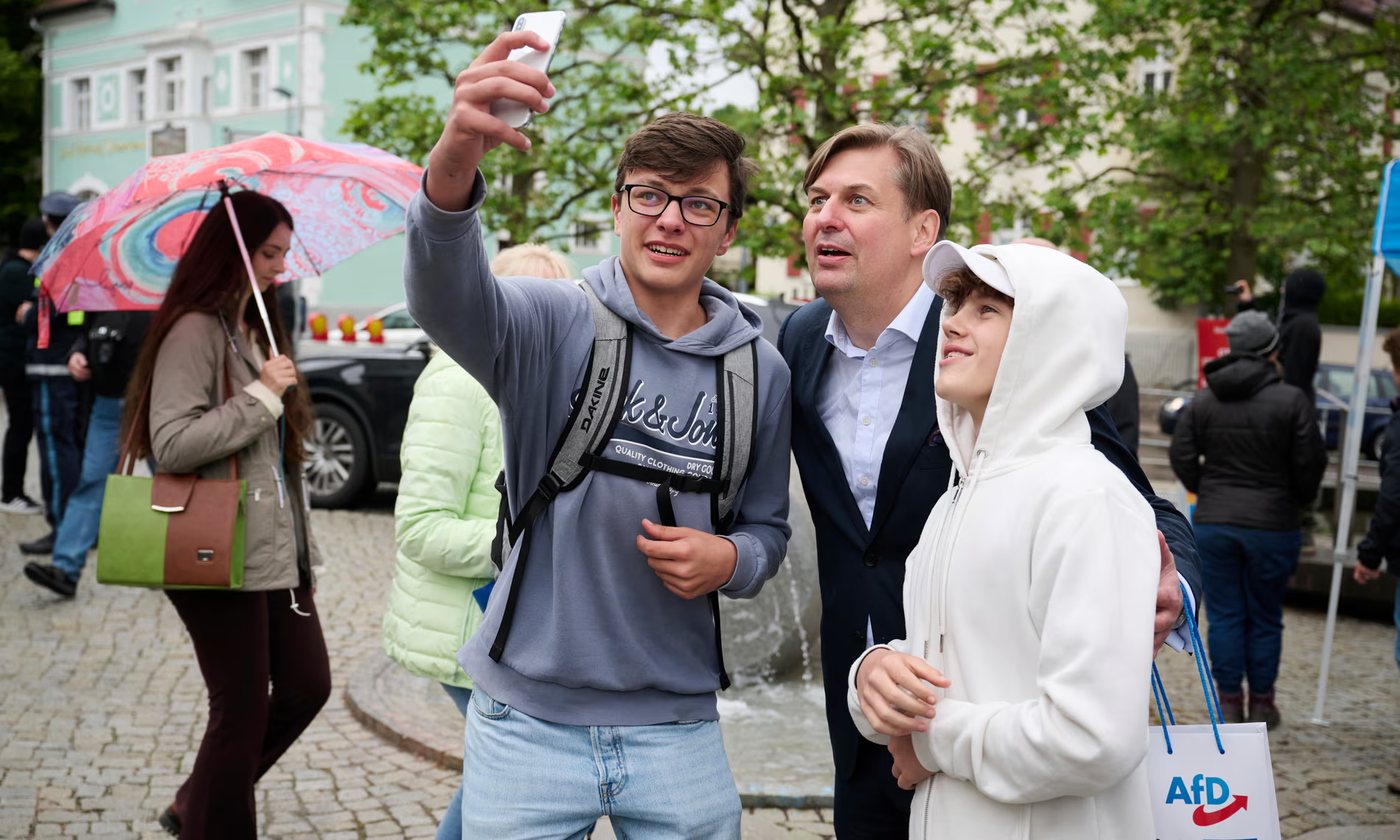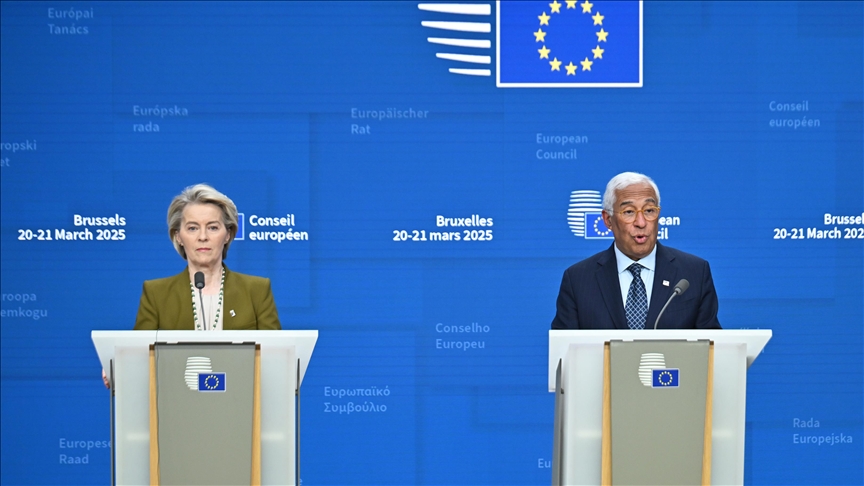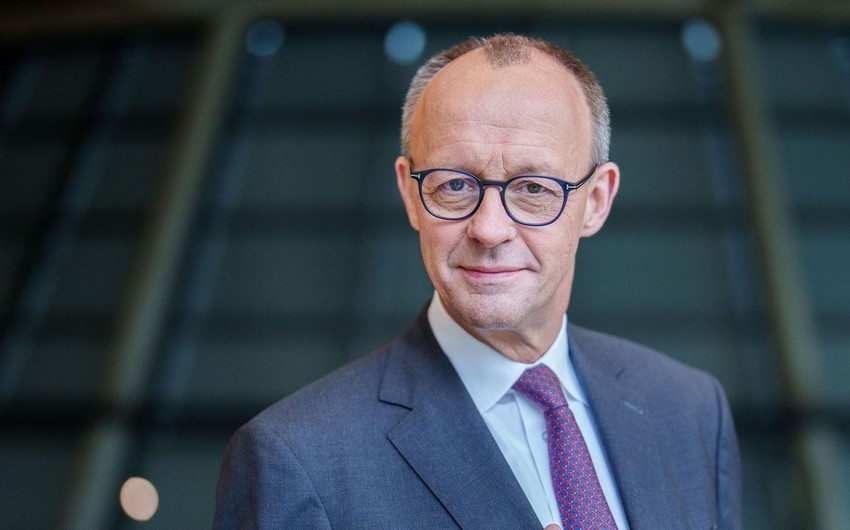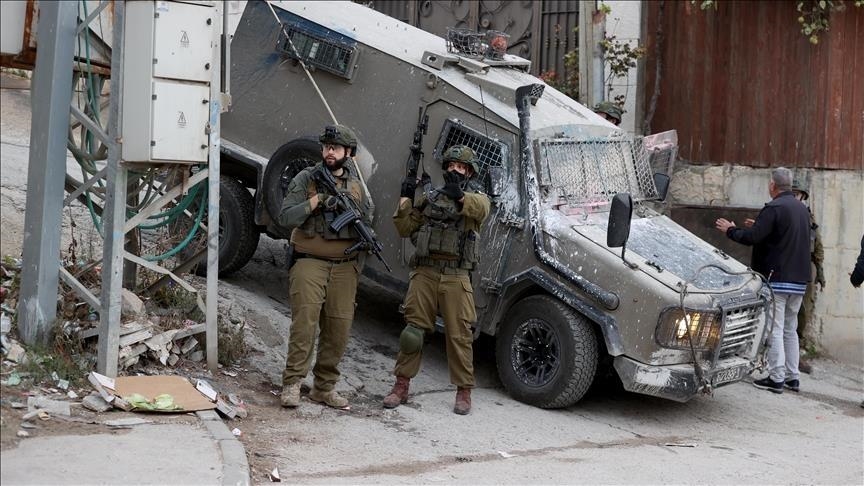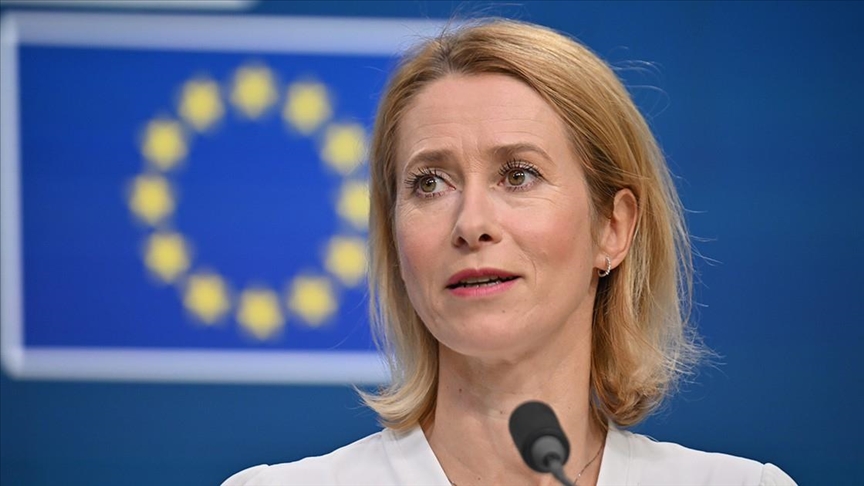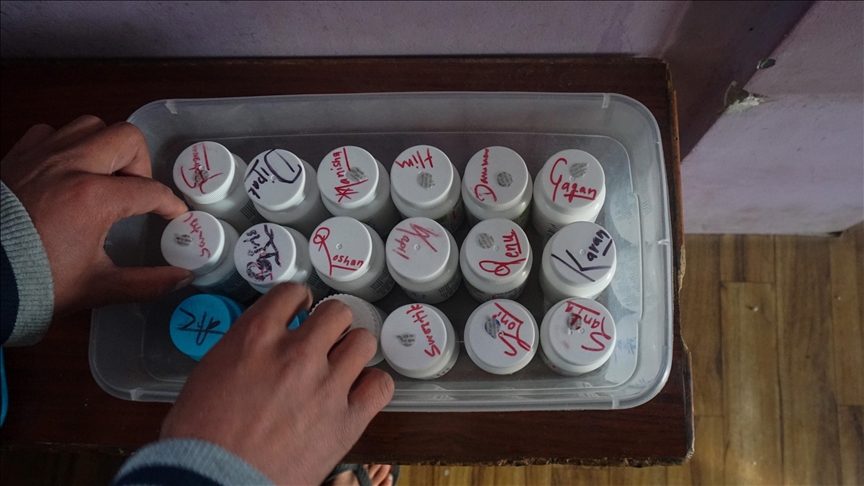Soaring church spires, the 1,000-year-old town centre unblemished by second world war bombing or graffiti, snow-capped Alps in the middle distance – Kaufbeuren, in Bavaria, can count many blessings.
Unemployment is in the low single digits, the Luftwaffe backed away from plans to move its training school for Eurofighter and Tornado jet technicians elsewhere and crime is at a historic low.
However, as voters prepare to elect a new European parliament next month, deep-seated fears have gripped a significant share of the electorate in one of the most affluent pockets of Europe’s top economy and delivered it to the far-right Alternative für Deutschland (AfD).
The bond between the party and its voters appears unshaken even by a cascade of recent scandals. The AfD’s lead candidate for the election, Maximilian Krah, was forced by his party leadership on Wednesday to resign from its board and stop campaigning after he told Italy’s La Repubblica that the SS, the Nazi paramilitary force which ran the death camps, were not all criminals and could only be judged on the basis of “individual guilt”.
The SS remark led France’s far-right National Rally (RN) to announce it would sever ties with the AfD in the EU assembly after the June election. The populist Identity and Democracy political group in the European parliament then moved to expel the AfD delegation “with immediate effect”.
Krah had already been in the spotlight for suspected Chinese and Russian ties after one of his aides was arrested on charges of spying for China. On the eve of his resignation, he told the Observer the allegations were “merely an attempt to distract from our political arguments” and threatened legal action against his accusers.
Polls show the AfD going into the EU election with 14-18% of the vote, well off its 23% high in October but up from its 11% score in 2019. Despite the rap on the knuckles, Krah is virtually guaranteed a seat in the next European parliament.
As he arrived for the Kaufbeuren rally last week wearing a blue suit and his trademark pocket handkerchief, Krah posed for selfies with dozens of fans including young men with short haircuts wearing lederhosen.
Surprisingly for many, the AfD continues to make inroads in Germany’s prosperous south and west, beyond its heartland in the poorer ex-communist east, as it embraces more extreme views on immigration, the war in Ukraine and national atonement for the Holocaust. But the right’s ascendancy has also given rise to a lively local pro-democracy movement that seeks to draw lessons from the town’s grim Nazi past.

